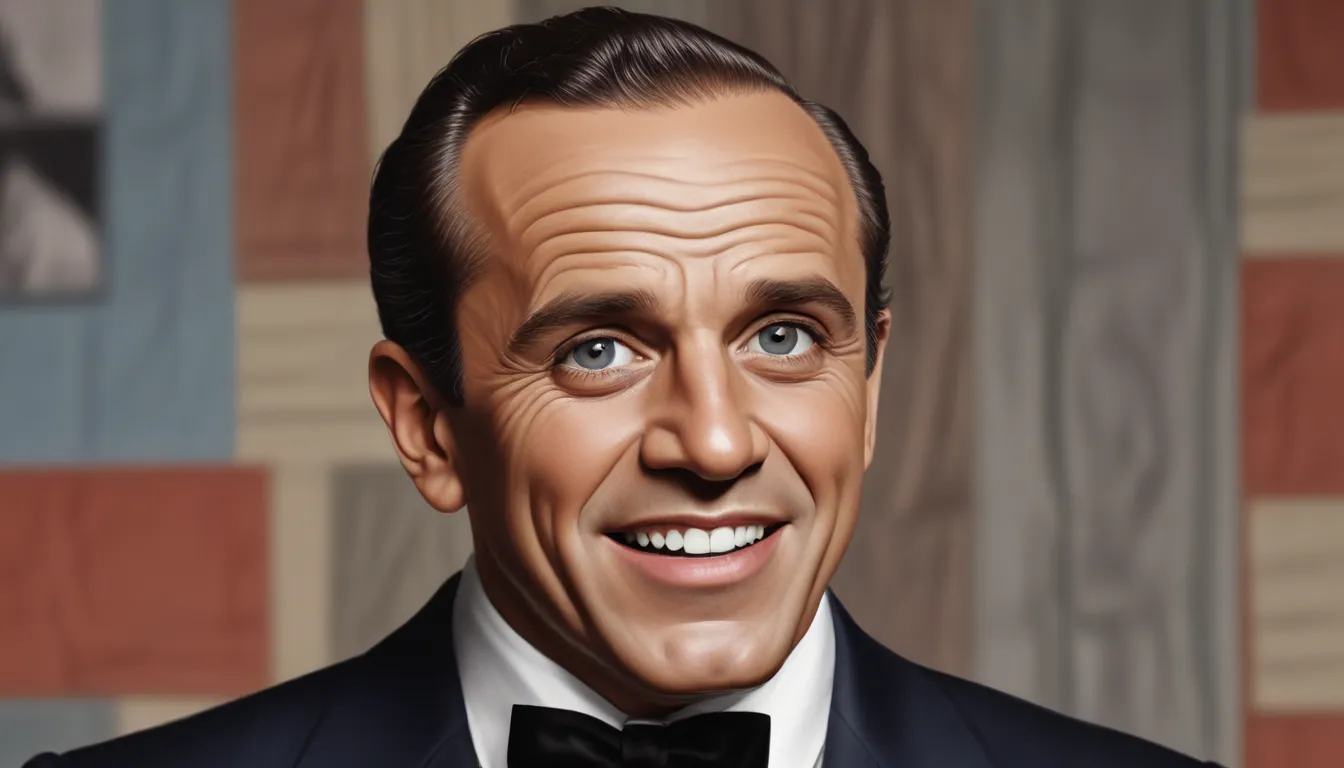The images in our articles may not match the content exactly. They are used to grab your attention, not to show the exact details in the text. The images complement the text but do not replace it.
Welcome to a captivating journey into the world of Al Jolson, a legendary American entertainer whose legacy continues to resonate through generations. Born as Asa Yoelson in Lithuania on May 26, 1886, Al Jolson made an indelible mark on the worlds of music, film, and theater, earning him the title of “The World’s Greatest Entertainer” during his prime. In this article, we will uncover 14 fascinating facts about Al Jolson’s life and career, shedding light on his successes, controversies, and enduring influence on popular culture.
The Early Life and Rise to Fame
Al Jolson’s story began in Lithuania, where he was born as Asa Yoelson. At the age of five, he and his family immigrated to the United States, setting the stage for his remarkable journey into the world of entertainment. From a young age, Jolson displayed a passion for music and entertaining, quickly rising to fame and capturing the hearts of audiences with his dynamic personality and powerful voice.
Breakthrough in The Jazz Singer
One of the defining moments in Al Jolson’s career came with the release of “The Jazz Singer” in 1927. This groundbreaking film marked the first feature-length motion picture with synchronized dialogue sequences, propelling Jolson to even greater stardom. His role in the film showcased his extraordinary talents and solidified his place in entertainment history.
Signature Song: “Mammy”
Among Al Jolson’s many achievements, his rendition of “Mammy” stands out as a signature song that resonated with audiences around the world. His soulful and powerful delivery of this classic tune captivated listeners and cemented its status as an enduring favorite.
Contributions to Blackface and Controversies
While Al Jolson’s performances in blackface were a common practice in his time, they have since sparked controversy and criticism. Despite the controversy, Jolson’s portrayal of African American characters played a significant role in shaping American popular culture at the time, highlighting the complexities of his legacy.
Philanthropic Endeavors
In addition to his entertainment career, Al Jolson was known for his philanthropic efforts, supporting various charities throughout his life. He often lent his talents to benefit concerts, raising funds for causes that were close to his heart and making a positive impact on those in need.
Impact on Broadway and Film
Al Jolson’s influence extended beyond the stage and screen, with his energetic performances on Broadway paving the way for future musical theater stars. While he is best known for his role in “The Jazz Singer,” Jolson’s versatility as an artist allowed him to excel in both comedic and dramatic roles on the silver screen.
Radio Show and Cultural Influence
Jolson’s popularity continued to soar with his own radio show, where his warm and engaging personality endeared him to listeners far and wide. His unique style and contributions to popular culture influenced generations of performers who followed in his footsteps, leaving an indelible mark on the world of entertainment.
Legacy and Enduring Popularity
Even decades after his passing in 1950, Al Jolson’s music and performances continue to captivate audiences and inspire new generations of fans. His timeless songs and films remain cherished classics that stand the test of time, showcasing the enduring power of his talent and charisma.
Influence on Modern Music
The influence of Al Jolson can be felt across various genres of music, with his innovative style and powerful performances shaping the course of popular music to this day. His contributions to the industry have left a lasting impact that continues to inspire artists and entertain audiences worldwide.
Conclusion: A Legendary Figure in Entertainment History
In conclusion, Al Jolson’s remarkable journey from vaudeville star to silver screen pioneer is a testament to his unparalleled talent, perseverance, and cultural significance. While his life was not without its controversies, his enduring legacy as one of the greatest entertainers of all time is undeniable. From heartfelt renditions of classic songs to his pioneering efforts in promoting racial equality, Al Jolson’s contributions to the entertainment industry continue to resonate and inspire to this day.
FAQs for Further Exploration
-
Major Achievements: Al Jolson achieved numerous milestones in his career, including starring in the first “talkie” film, “The Jazz Singer,” and establishing himself as a highly influential figure in entertainment.
-
Influence on the Industry: Al Jolson’s unique singing style and ability to connect with audiences significantly influenced future generations of performers and helped break down racial barriers in the entertainment industry.
-
Controversies: Al Jolson faced criticism for his use of blackface, a practice that has since been widely condemned for its racist connotations, despite his defense of it as a tribute to the African American community.
-
Promotion of Racial Equality: Despite controversies, Al Jolson actively promoted racial equality during his career by featuring African American performers in his shows and advocating against discrimination in the industry.
-
Legacy: Al Jolson’s legacy is one of musical innovation, cultural impact, and advocacy for racial equality, with his influence continuing to inspire artists in music, film, and theater today.
Embark on a journey into the captivating world of Al Jolson, where talent, passion, and cultural significance converge to create an enduring legacy that continues to inspire and entertain audiences worldwide.






